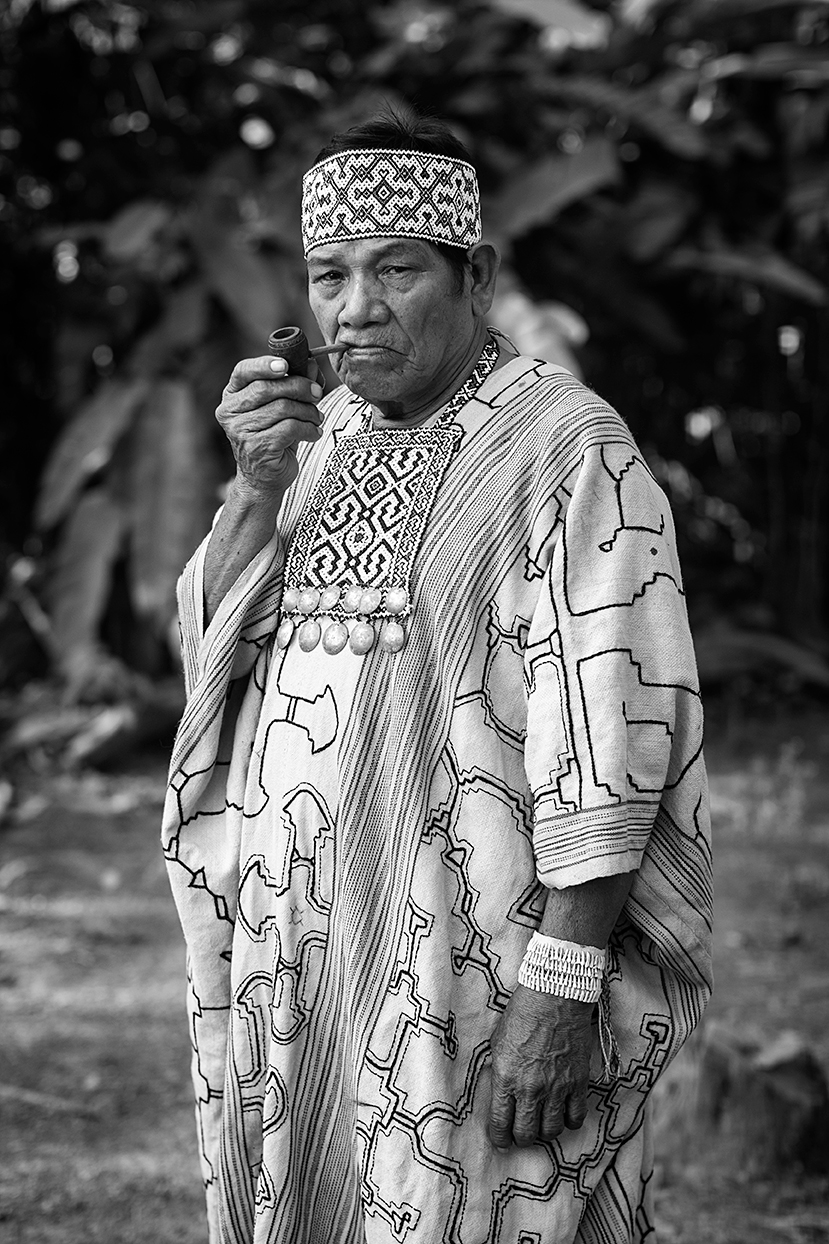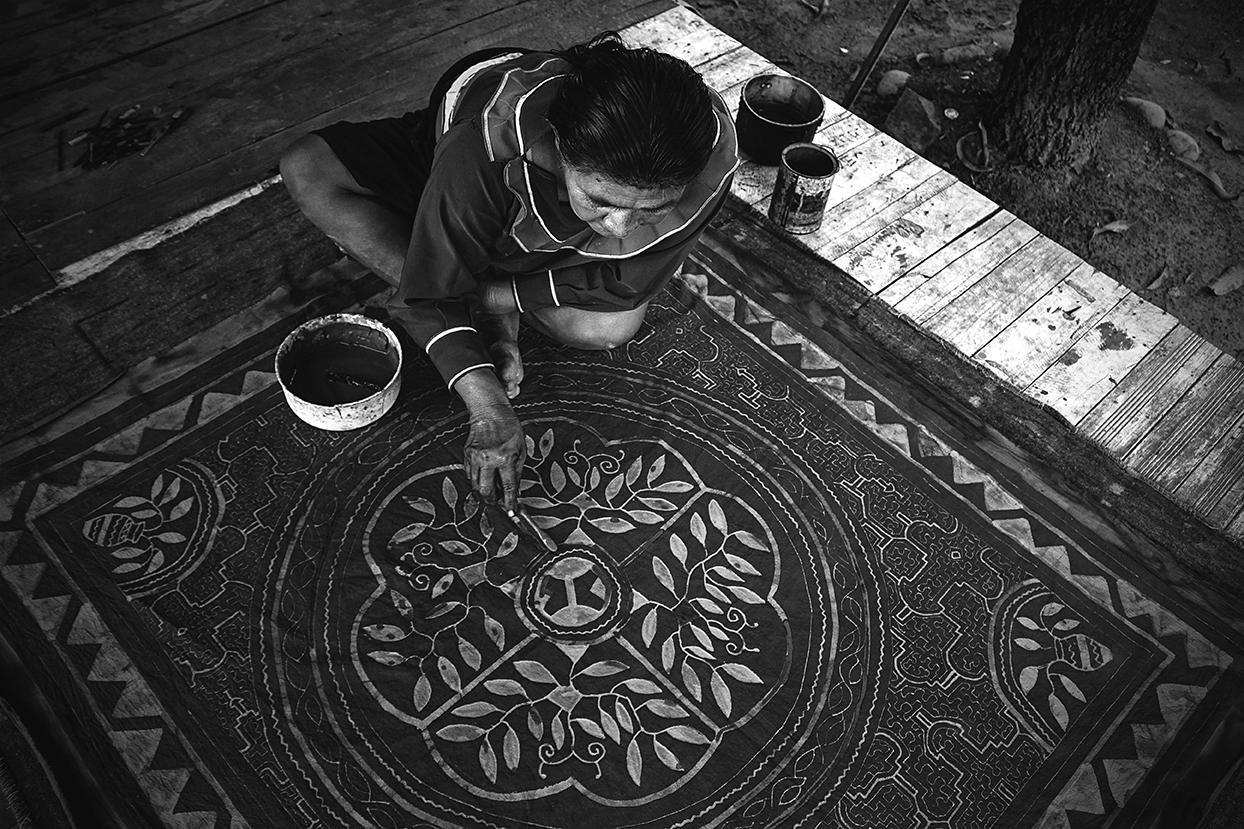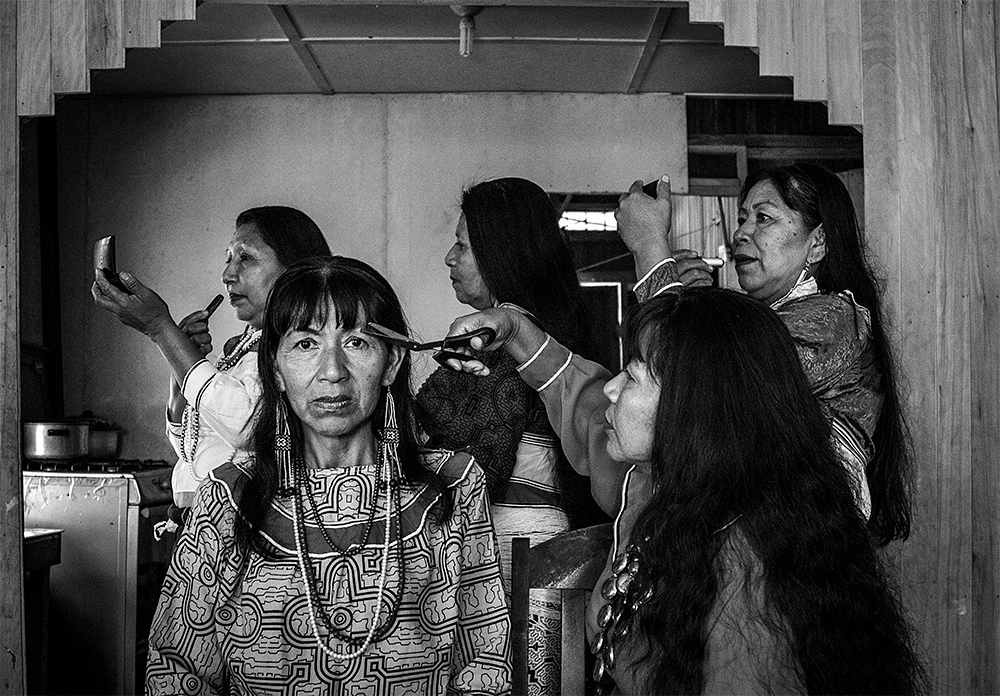Top image:
A Shipibo-Konibo Family Reunion.
Bangs cut of a woman who is in mourning and behind other women painting their lips; this is an ancient tradition that survives until today in some Shipibo families and reflects the daily life of some Shipibo families from human settlements far from Pucallpa.
Pucallpa, Ucayali-Perú 2018 * David Díaz Gonzales

My name is David Díaz Gonzales, I am 29 years old. I am a native of the Nuevo Saposoa native community, located in the Coronel Portillo province the Ucayali region (in what is known as Peru – red.), belonging to the Shipibo-Konibo Indigenous people. I currently live in the city of Lima and I dedicate myself to independent photography. I have specialized in portrait photography of an Indigenist, documentary and photojournalistic nature. I use photography as a memory tool to strengthen the identity of the Shipibo-Konibo people and its permeation over time.
I work in registering through photography my family, my neighbors, friends and everything that surrounds me to finally have this material that will remain for the Shipibo-Konibo people and for Peru, since we know that a culture is dynamic; the Shipibo-Konibo people are going through a time of transition and there will be many things that will not be the same in the coming years, that is why I feel that now is the time and my responsibility to document these changes and manifest themselves through photography. I believe that it is necessary to have a genuine voice of my own, and to do it from the inside out, to be able to make visible the current context and in a real way, the daily life and the problems of the Amazonian peoples, without the need to fall into stereotypes.

Shaman, Ruperto Fasabi (64) connoisseur of natural medicine.
Belonging to the Nuevo Saposoa community; He currently lives in the city of Pucallpa.
Yarinacocha, Ucayali-Peru 2020 * David Díaz Gonzales
Shipibo-Konibo: Portraits of my Blood is a photographic project that seeks to make the Shipibo-Konibo people visible through a tribute to my ancestors and the pioneers of photography in Peru. With Images that show the passage of time and the transition of the adaptation of the Shipibo people to the current context.
It is a search for the permanence of our culture over time and memory in our future generations to strengthen Indigenous identity. I have used photography as a memory tool for the Shipibo-Konibo people. I feel that it is very important to be able to preserve who we are through images. Because the preservation of our people is necessary since Peru is a multicultural country and knowledge is necessary to strengthen the identity of a country.
This project means a significant advance in strengthening the identity of our culture and the new way of building the image that we want to have of our culture. Because within my culture there are few people who dedicate themselves to photography in a deeper way, so I decided from my perspective and from the way that I can only subsist, which is to take photos.
The way in which my culture has influenced my artistic formation has been essential for me to understand the importance of making it visible and protecting it.
The fact of having the cosmovision in which I understand the subsistence of the human being next to nature and being part of it has given me an introspective vision about the human being and his presence on earth.
I think that it is my responsibility to create this work because I am the one who has managed to understand the meaning of photography in its deepest way and for which it was created, which is the interpretation of the mimesis of reality. In other words, I understand by photography that it is the record of the most important events that take place within reality, and in that sense, I thought it was important to record the stages of adaptation of the Shipibo-Konibo people in this new globalized world.

The artisan Clementina Laulate painting the kene (design) with natural dyes from tree bark and clay on Tocuyo cloth.
Pucallpa, Ucayali-Peru 2018 * David Díaz Gonzales
What drives me is the struggle against time and memory. My work is driven by respect for nature and its rapid advancement and the short time of our lives in this world.
It is the globalized world and the rapid advancement that has influenced our Indigenous culture that is threatened to disappear since a culture is changing and dynamic according to its context. I am afraid that my culture will disappear in the face of the advancement of technology and the globalized world and then be forgotten in time.
I think it is important to seek union and knowledge of the various cultures that exist in Peru and in our society. It is important to share with the rest of the world the way of life and the view that Indigenous peoples have regarding life and the worldview regarding nature. I would like the audience of my work to understand how small the human being is in front of nature and that is why respect and conservation are necessary.
I would like humanity to move forward with a lot of empathy and solidarity toward other people. A society that is inclusive, tolerant, and respectful of the environment and of the different ways and views of native peoples worldwide.
You can see more of David’s work on our IG channel: @_natv

